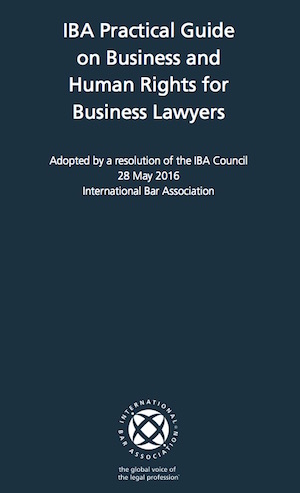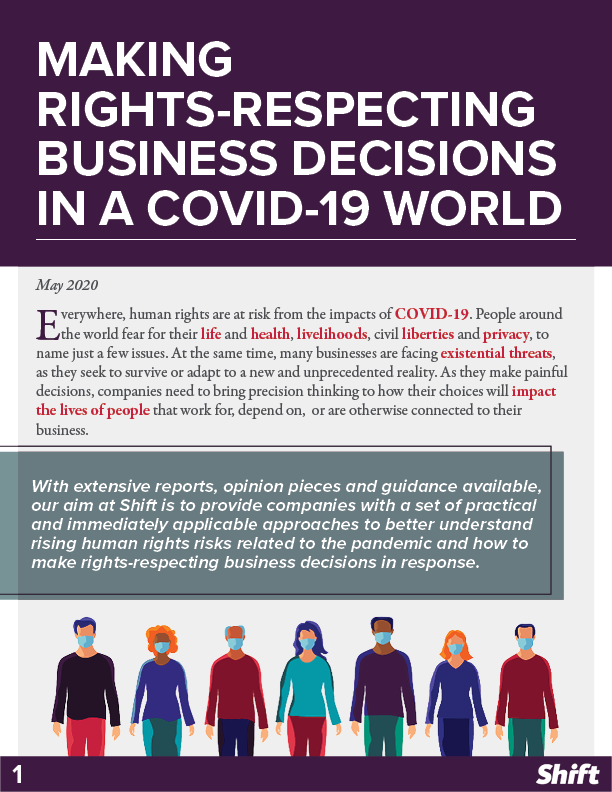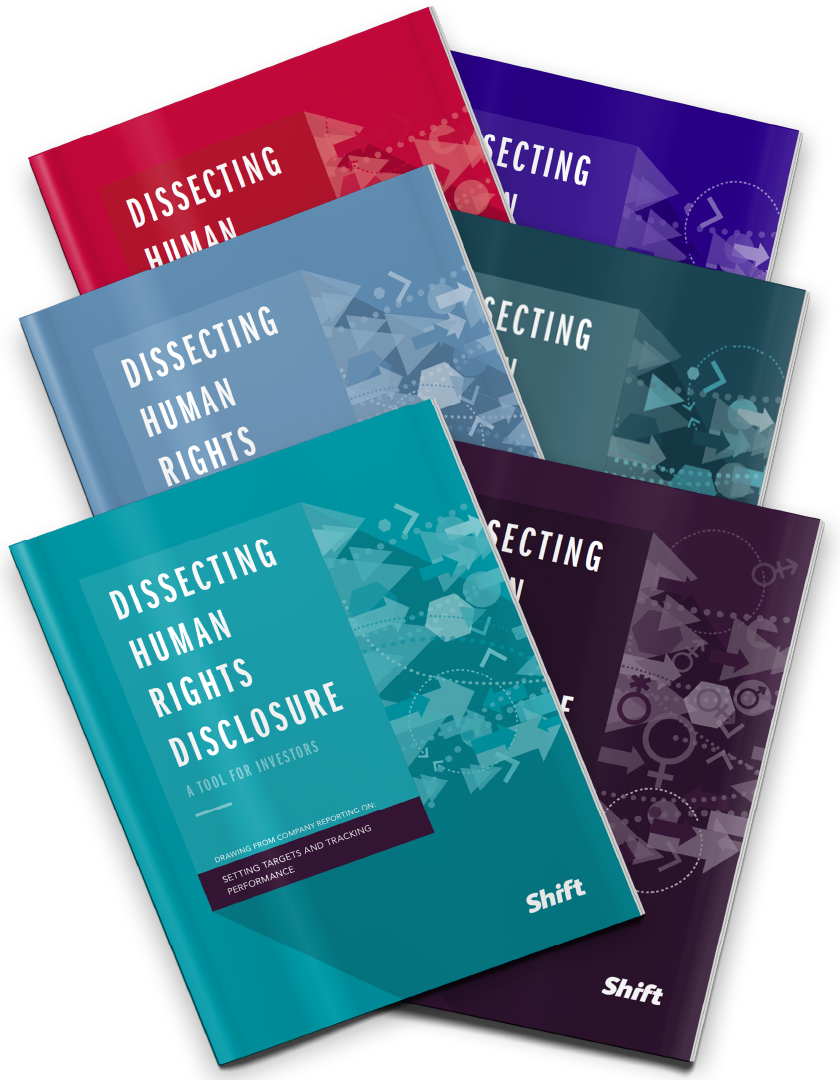Shift General Counsel and Senior Advisor John Sherman chaired the IBA Business and Human Rights Working Group that developed the guide over an 18-month global consultation process.
The text below is excerpted from the resource. For more information on this guidance, see our news announcement on its publication and our Guest Viewpoint from IBA President David W. Rivkin.
Also see: International Bar Association Handbook for Lawyers on Business and Human Rights (July 2017)
Introduction
At its Annual Conference in Vienna in October 2015, the IBA Council adopted its Business and Human Rights Guidance for Bar Associations (‘Bar Association Guide’). The IBA noted that its founding in 1947 had been inspired by the vision of the United Nations, with the aim of supporting the establishment of the rule of law and the administration of justice worldwide. It described the unanimous endorsement by the UN Human Rights Council of the UN Guiding Principles (UNGPs), drafted by the Special Representative of the UN Secretary General on Business and Human Rights (SRSG), Professor John Ruggie. It recalled the IBA’s significant contributions to and support of the SRSG’s UN mandate, and noted that governments have evidenced strong support for the UNGPs as an authoritative policy framework, including through the development of national action plans to implement them. It described the reflection of the UNGPs in international and industry specific standards. And it noted the growing recognition of a strong business case for respecting human rights and the management of risks, including legal risks, resulting in the need for lawyers to take human rights into account in their practice of law.
In order to help bar associations and lawyers better understand these issues, the IBA committed to prepare a Practical Guide for Business Lawyers on the Guiding Principles (the ‘Practical Guide’) that would ‘set out in detail the core content of the UNGPs, how they can be relevant to the advice provided to clients by individual lawyers subject to their unique professional standards and rules (whether they are in-house or external counsel acting in their individual capacity or as members of a law firm) and their potential implications for law firms as business enterprises with a responsibility to respect human rights themselves.’
At the conference, the IBA Council also adopted a resolution approving the Bar Association Guide, looking forward to the Practical Guide’s presentation for approval in May 2016, and stating that ‘in line with the provisions of the UN Basic Principles on the Role of Lawyers as resolved by the UN General Assembly in its ‘Human rights in the administration of justice’ resolution of 18 December 1990 (Basic Principles), nothing in the Guidance for Bar Associations or in the IBA Practical Guide for Business Lawyers (once approved) shall be interpreted as reducing respect for the fundamental human right of effective access to legal services provided by an independent legal profession to all in need of such services, including that all lawyers should always be able to fulfill their duties and responsibilities and enjoy the guarantees provided for by the Basic Principles, consistent with their legal and professional responsibilities.’
This Practical Guide has been prepared to fulfill these purposes.
Contents of the Practical Guide
The Practical Guide is intended to provide an accessible summary of a complex and nuanced subject by assisting internal and external lawyers who are involved in advising businesses globally through:
- Explaining the background and core content of the UNGPs, which are also incorporated into other relevant human rights and responsible business practice standards and approaches, such as the OECD Guidelines for Multinational Enterprises, the IFC Performance Standards, ISO 26000 and supports the UN Global Compact responsible business principles (Section 2, infra);
- Exploring how the UNGPs may be relevant to the advice and other services they – both in-house and external lawyers – provide to business clients (Section 3, infra);
- Explaining the implications of the UNGPs for the clients’ right of access to, and representation by, independent legal counsel (Section 4, infra);
- Exploring the opportunities and challenges that the UNGPs present for lawyers who advise businesses, including both internal and external legal counsel (Sections 5 and 6, infra).
Reference Annex
In November 2016, the IBA published additional guidance to support users’ implementation of the Practical Guide. Click here to see the Reference Annex to the Practical Guide.




